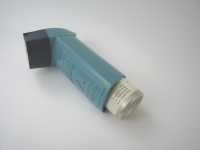Exercise - Fitness, Steroids / 10.10.2024
Author Interviews, Dermatology, JAMA, OBGYNE, Pediatrics / 09.05.2021
Reassuring Study of Topical Steroids During Pregnancy
MedicalResearch.com Interview with:
Niklas Worm Andersson, MD
Department of Epidemiology Research
Statens Serum Institut,
Copenhagen Denmark
MedicalResearch.com: What is the background for this study?
Response: "Findings from some previous fetal safety studies on topical corticosteroid use in pregnancy have raised concerns for an increased risk of newborns being small for gestational age or having low birth weight, in particular among pregnancies where larger amounts of potent to very potent agents have been used."
(more…)
Asthma, AstraZeneca, Author Interviews / 01.12.2020
PONENTE Study: Severe Asthma Patients Receiving Fasenra (Benralizumab) Able To Reduce or Discontinue Oral Steroids
MedicalResearch.com Interview with:
Frank Trudo, MD MBA
Vice President, US Medical, Respiratory & Immunology
AstraZeneca
MedicalResearch.com: What is the background for this study?
Response: PONENTE is a multicenter, open-label, single-arm, Phase IIIb trial to evaluate the efficacy and safety of reducing daily oral corticosteroids (OCS) use after initiation of 30 mg dose of FASENRA (benralizumab) administered subcutaneously in adult patients with severe eosinophilic asthma on high-dose inhaled corticosteroids plus long-acting beta2-agonist and long-term use of OCS therapy with or without additional asthma controller(s). The trial expands on OCS-sparing data previously seen in the ZONDA Phase III trial by using a faster steroid tapering schedule in patients who did not experience adrenal insufficiency to reduce OCS use from higher doses.
Compared to published trials of other biologics, PONENTE has a personalized OCS tapering schedule that allows for more rapid OCS tapering from higher OCS doses, followed by an assessment of the adrenal function as part of decision-making to manage the risk of adrenal insufficiency. PONENTE also has a longer maintenance phase (approximately 24-32 weeks), allowing assessment of the durability of OCS reduction.
FASENRA is a monoclonal antibody that binds directly to IL-5 receptor alpha on eosinophils and attracts natural killer cells to induce rapid and near-complete depletion of eosinophils via apoptosis (programmed cell death).
MedicalResearch.com: How is it administered?
Response: FASENRA is injected under your skin (subcutaneously) one time every 4 weeks for the first 3 doses, and then every 8 weeks. In 2019, FASENRA was approved in the US for self-administration in a single dose prefilled autoinjector, the FASENRA pen.
(more…)
Asthma, Author Interviews, BMJ, Osteoporosis / 21.10.2020
Oral and Inhaled Corticosteroids For Asthma Linked to Increased Risk of Osteoporosis
MedicalResearch.com Interview with:
Christos Chalitsios B.Sc, M.Sc PhD student
Funded by British Medical Association (BMA)
School of Medicine
Division of Respiratory Medicine
University of Nottingham
City Hospital,Nottingham
MedicalResearch.com: What is the background for this study?
Response: Inhaled (ICS) and oral (OCS) corticosteroids play a crucial role in the control of airway inflammation in asthma. Given that the use of ICS in asthma is likely to increase with the recent change in GINA guidance recommending combined long-acting-β2-agonists with ICS at step 1 and the upward trend in prescribing of OCS, we sought to clarify the link between steroids, osteoporosis and FF in patients with asthma, stratifying the risk by dose, number of courses and type of steroids. The prevalence of patients receiving at least one bisphosphonate was also calculated.
(more…)
Asthma, AstraZeneca, Author Interviews, Cost of Health Care / 01.05.2020
Lifetime Health Care Costs Associated with Systemic Corticosteroid Use in Adults with Persistent Asthma
MedicalResearch.com Interview with:
 Yen Chung, PharmD
Payer Evidence Director
US Medical Affairs, AstraZeneca
MedicalResearch.com: What is the background for this study?
Response: Among patients with persistent asthma, use of systemic corticosteroids (SCS) is typically reserved for treatment of asthma exacerbations and as a supplemental maintenance therapy for patients whose disease remains uncontrolled with maximum maintenance controller therapies. However, SCS therapy comes with known risks for acute and chronic complications. It is well established that patients with severe asthma are responsible for a disproportionate amount of the economic burden of asthma; however, less clear is the extent to which systemic corticosteroids use and its consequences specifically contributes to the cost burden of asthma.
The purpose of this study was to use administrative claims to follow asthma patients with and without SCS treatment for up to 3 years and compare their complication rates, health care resource utilization, and costs. (more…)
Yen Chung, PharmD
Payer Evidence Director
US Medical Affairs, AstraZeneca
MedicalResearch.com: What is the background for this study?
Response: Among patients with persistent asthma, use of systemic corticosteroids (SCS) is typically reserved for treatment of asthma exacerbations and as a supplemental maintenance therapy for patients whose disease remains uncontrolled with maximum maintenance controller therapies. However, SCS therapy comes with known risks for acute and chronic complications. It is well established that patients with severe asthma are responsible for a disproportionate amount of the economic burden of asthma; however, less clear is the extent to which systemic corticosteroids use and its consequences specifically contributes to the cost burden of asthma.
The purpose of this study was to use administrative claims to follow asthma patients with and without SCS treatment for up to 3 years and compare their complication rates, health care resource utilization, and costs. (more…)
 Yen Chung, PharmD
Payer Evidence Director
US Medical Affairs, AstraZeneca
MedicalResearch.com: What is the background for this study?
Response: Among patients with persistent asthma, use of systemic corticosteroids (SCS) is typically reserved for treatment of asthma exacerbations and as a supplemental maintenance therapy for patients whose disease remains uncontrolled with maximum maintenance controller therapies. However, SCS therapy comes with known risks for acute and chronic complications. It is well established that patients with severe asthma are responsible for a disproportionate amount of the economic burden of asthma; however, less clear is the extent to which systemic corticosteroids use and its consequences specifically contributes to the cost burden of asthma.
The purpose of this study was to use administrative claims to follow asthma patients with and without SCS treatment for up to 3 years and compare their complication rates, health care resource utilization, and costs. (more…)
Yen Chung, PharmD
Payer Evidence Director
US Medical Affairs, AstraZeneca
MedicalResearch.com: What is the background for this study?
Response: Among patients with persistent asthma, use of systemic corticosteroids (SCS) is typically reserved for treatment of asthma exacerbations and as a supplemental maintenance therapy for patients whose disease remains uncontrolled with maximum maintenance controller therapies. However, SCS therapy comes with known risks for acute and chronic complications. It is well established that patients with severe asthma are responsible for a disproportionate amount of the economic burden of asthma; however, less clear is the extent to which systemic corticosteroids use and its consequences specifically contributes to the cost burden of asthma.
The purpose of this study was to use administrative claims to follow asthma patients with and without SCS treatment for up to 3 years and compare their complication rates, health care resource utilization, and costs. (more…)
Author Interviews, Critical Care - Intensive Care - ICUs, Infections, JAMA / 26.12.2018
Steroids Associated With Reduced Mortality in Adults with Sepsis
MedicalResearch.com Interview with:
Dr. Jianguo Xu, MD
West China Hospital, Sichuan University
Chengdu, Sichuan, China
MedicalResearch.com: What is the background for this study?
Response: Since the mid-20th century, corticosteroids have been used as adjuvant therapy in the context of sepsis. Although evaluated in numerous randomized clinical trials and meta-analyses, both the safety and efficacy of corticosteroids remain controversial.
(more…)
Asthma, Author Interviews, NEJM, Pulmonary Disease / 09.03.2018
Quadrupling Inhaled Steroids May Abort Some Asthma Attacks
MedicalResearch.com Interview with:
 Timothy Harrison, MBBS, BSc, FRCP, MD, MSc
Professor and Honorary Consultant
Faculty of Medicine & Health Sciences
University of Nottingham
MedicalResearch.com: What is the background for this study? What are the main findings?
Response: Self management plans are recommend for patients with asthma but previous studies have shown that doubling the dose of inhaled steroids when asthma starts deteriorating is ineffective at preventing the development of an exacerbation.
This study shows that quadrupling the dose is effective and in a real-life setting can reduce severe exacerbations by about 20%
(more…)
Timothy Harrison, MBBS, BSc, FRCP, MD, MSc
Professor and Honorary Consultant
Faculty of Medicine & Health Sciences
University of Nottingham
MedicalResearch.com: What is the background for this study? What are the main findings?
Response: Self management plans are recommend for patients with asthma but previous studies have shown that doubling the dose of inhaled steroids when asthma starts deteriorating is ineffective at preventing the development of an exacerbation.
This study shows that quadrupling the dose is effective and in a real-life setting can reduce severe exacerbations by about 20%
(more…)
 Timothy Harrison, MBBS, BSc, FRCP, MD, MSc
Professor and Honorary Consultant
Faculty of Medicine & Health Sciences
University of Nottingham
MedicalResearch.com: What is the background for this study? What are the main findings?
Response: Self management plans are recommend for patients with asthma but previous studies have shown that doubling the dose of inhaled steroids when asthma starts deteriorating is ineffective at preventing the development of an exacerbation.
This study shows that quadrupling the dose is effective and in a real-life setting can reduce severe exacerbations by about 20%
(more…)
Timothy Harrison, MBBS, BSc, FRCP, MD, MSc
Professor and Honorary Consultant
Faculty of Medicine & Health Sciences
University of Nottingham
MedicalResearch.com: What is the background for this study? What are the main findings?
Response: Self management plans are recommend for patients with asthma but previous studies have shown that doubling the dose of inhaled steroids when asthma starts deteriorating is ineffective at preventing the development of an exacerbation.
This study shows that quadrupling the dose is effective and in a real-life setting can reduce severe exacerbations by about 20%
(more…)
Author Interviews, Multiple Sclerosis, Ophthalmology, Pharmaceutical Companies / 08.03.2018
Oral vs IV Steroids for Acute Optic Neuritis
MedicalResearch.com Interview with:
Sarah A. Morrow MD, MS, FRCPC
Associate Professor of Neurology
Department of Clinical Neurological Sciences
University of Western Ontario (Western)
MedicalResearch.com: What is the background for this study?
Response: Acute demyelinating optic neuritis, which presents with loss of vision and painful eye movements, is common in multiple sclerosis (MS) occurring 50% of persons with MS. High dose (≥ 1g) corticosteroids administered through an IV became the standard of practice after the landmark Optic Neuritis Treatment Trial as IV administration. However, in that study the IV dose of corticosteroids was much higher (1 gram daily) than the oral dose (1 mg/kg). Thus, it is not clear if IV administration is still better if equivalent doses are used orally. Oral administration is much more convenient for patients and less expensive, and previous studies showed that it is preferred by patients.
In this study, we asked the following question: are high dose (≥ 1000mg) IV corticosteroids superior to equivalent doses of oral corticosteroids for the acute treatment of optic neuritis?
We randomly assigned fifty-five cases of acute optic neuritis to 1000mg IV methylprednisolone or 1250mg oral prednisone daily for three days and compared recovery of their vision over the next 6 months. (more…)
MedicalResearch.com Interview with:
Bala Venkatesh, MBBS, MD(Int.Med), FRCA, FFARCSI, MD(UK), FCICM
Director of Intensive Care, Wesley Hospital
Pre-eminent specialist, Princess Alexandra Hospital
Professor of Intensive Care,University of QLD
Honorary Professor, University of New South WalesProfessorial Fellow, The George Institute for Global Health
MedicalResearch.com: What is the background for this study? What are the main findings?
Response: Whether hydrocortisone reduces mortality in patients with septic shock is unclear. The uncertainty about the efficacy of glucocorticoids in reducing mortality in patients with septic shock has resulted in widespread variation in clinical practice
In the results published in the New England Journal of Medicine the investigators found steroids not only reduced the duration of septic shock, they also led to less blood transfusions, and the time spent on life support therapy in intensive care. However, the use of steroids did not lead to fewer deaths overall compared to placebo.
Some of the findings are consistent with previous research whilst other results add new information that will inform clinicians.
Our results show there is still a lot to learn about septic shock which kills up to half of those affected in some parts of the world. There are undoubtedly many other contributors to survival which we don’t yet understand. (more…)
Abuse and Neglect, Dermatology, Pharmacology / 11.12.2017
Atopic Dermatitis: IF Used At All, Systemic Steroids Should Be Short Term Bridge To Other Therapies
MedicalResearch.com Interview with:
Dr. Jonathan L. Silverberg MD PhD MPH
Assistant Professor in Dermatology
Medical Social Sciences and Preventive Medicine
Northwestern University, Chicago, Illinois
MedicalResearch.com: What is the background for this study? What are the main findings?
Response: Systemic corticosteroids are commonly used as systemic treatments for atopic dermatitis. However, few studies assessed the efficacy and safety of systemic corticosteroids in atopic dermatitis. This systematic review sought to summarize the available evidence for their use in atopic dermatitis.
Overall, 52 reviews and 12 studies were included in this systematic review. Most studies suffered from small sample size, low quality. In one of the only randomized-controlled trials performed, systemic corticosteroids were less effective than cyclosporine and led to more rebound flares. There were numerous safety and tolerability concerns with both short and long-term treatment with systemic corticosteroids. One study found that even short-term use of systemic corticosteroids was associated with increased sepsis, venous thromboembolism and fractures.
(more…)
Asthma, Author Interviews, JAMA, Orthopedics, Pediatrics / 14.11.2017
No Link Found Inhaled Steroids and Bone Fractures in Asthmatic Children
MedicalResearch.com Interview with:
 Teresa To, PhD
Biostatistics, Design and Analysis
Scientific Director
The Hospital for Sick Children
Dalla Lana School of Public Health, University of Toronto
Institute for Clinical Evaluative Sciences
Toronto, Ontario, Canada
MedicalResearch.com: What is the background for this study? What are the main findings?
Response: We studied asthma prescription drug use in Ontario children aged 2 to 18 years with physician diagnosed asthma between 2003 and 2014.
We found that:
Teresa To, PhD
Biostatistics, Design and Analysis
Scientific Director
The Hospital for Sick Children
Dalla Lana School of Public Health, University of Toronto
Institute for Clinical Evaluative Sciences
Toronto, Ontario, Canada
MedicalResearch.com: What is the background for this study? What are the main findings?
Response: We studied asthma prescription drug use in Ontario children aged 2 to 18 years with physician diagnosed asthma between 2003 and 2014.
We found that:
 Teresa To, PhD
Biostatistics, Design and Analysis
Scientific Director
The Hospital for Sick Children
Dalla Lana School of Public Health, University of Toronto
Institute for Clinical Evaluative Sciences
Toronto, Ontario, Canada
MedicalResearch.com: What is the background for this study? What are the main findings?
Response: We studied asthma prescription drug use in Ontario children aged 2 to 18 years with physician diagnosed asthma between 2003 and 2014.
We found that:
Teresa To, PhD
Biostatistics, Design and Analysis
Scientific Director
The Hospital for Sick Children
Dalla Lana School of Public Health, University of Toronto
Institute for Clinical Evaluative Sciences
Toronto, Ontario, Canada
MedicalResearch.com: What is the background for this study? What are the main findings?
Response: We studied asthma prescription drug use in Ontario children aged 2 to 18 years with physician diagnosed asthma between 2003 and 2014.
We found that:
- Currently in Ontario, nearly 50% of children with asthma did not fill a prescription for an inhaled corticosteroid during the study period, despite these medications being considered the gold-standard for asthma management.
- Our findings did not show clinically important association between inhaled corticosteroids and fracture among children with asthma.
- However, systemic corticosteroids (oral or injection) are associated with higher fracture risk in children with asthma (17% higher risk).
Author Interviews, Diabetes, Endocrinology, Hormone Therapy / 19.09.2016
Abuse of Anabolic Steroids May Impair Insulin Resistance For Years After Discontinuation
MedicalResearch.com Interview with:
Jon Rasmussen, MD, PhD fellow
Department of Internal Medicine
Herlev Hospital, Denmark
MedicalResearch.com: What is the background for this study?
Response: Abuse of anabolic androgenic steroids has become highly prevalent among young men involved in recreational strength training. A recent meta-analysis estimated that approximately 18% of young men involved recreational strength training abuse anabolic steroids.
Well-known adverse effects following abuse of anabolic steroids include hypogonadism (For those who have interest, we have recently published a paper concerning this issue, it can be read and downloaded at: http://journals.plos.org/plosone/article?id=10.1371/journal.pone.0161208).
Yet, we have a poor understanding on the adverse effects these compounds might have on the metabolism and insulin sensitivity.
(more…)
Annals Internal Medicine, Author Interviews, Infections, Respiratory / 16.08.2015
Steroids May Improve Outcomes For Community-Acquired Pneumonia
 MedicalResearch.com Interview with:
Reed A.C. Siemieniuk, MD
Department of Clinical Epidemiology & Biostatistics
Ontario Canada
Medical Research: What is the background for this study? What are the main findings?
Dr. Siemieniuk: Local and cytokine-mediated systematic inflammatory responses help clear bacterial pathogens in community-acquired pneumonia (CAP), but often they can also cause harm. Pneumonia is the most common cause of the acute respiratory distress syndrome (ARDS), an often fatal inflammatory complication. Two randomized trials were published earlier this year, each of which suggested the possibility of benefit from adjunctive corticosteroid therapy. We decided to perform a systematic review and meta-analysis, taking all available data into consideration.
Corticosteroids may be effective for reducing the incidence of ARDS by 6%, the need for mechanical ventilation by 5%, and mortality by 3% (all moderate confidence). They also reduce time to clinical stability and time to discharge by approximately 1 day (high confidence).
For an interactive summary of findings table that shows the study's findings, please see: http://isof2.epistemonikos.org/#/finding/550bc6acf30d0c43083e63a0.
(more…)
MedicalResearch.com Interview with:
Reed A.C. Siemieniuk, MD
Department of Clinical Epidemiology & Biostatistics
Ontario Canada
Medical Research: What is the background for this study? What are the main findings?
Dr. Siemieniuk: Local and cytokine-mediated systematic inflammatory responses help clear bacterial pathogens in community-acquired pneumonia (CAP), but often they can also cause harm. Pneumonia is the most common cause of the acute respiratory distress syndrome (ARDS), an often fatal inflammatory complication. Two randomized trials were published earlier this year, each of which suggested the possibility of benefit from adjunctive corticosteroid therapy. We decided to perform a systematic review and meta-analysis, taking all available data into consideration.
Corticosteroids may be effective for reducing the incidence of ARDS by 6%, the need for mechanical ventilation by 5%, and mortality by 3% (all moderate confidence). They also reduce time to clinical stability and time to discharge by approximately 1 day (high confidence).
For an interactive summary of findings table that shows the study's findings, please see: http://isof2.epistemonikos.org/#/finding/550bc6acf30d0c43083e63a0.
(more…)
Author Interviews, JAMA, Surgical Research / 16.10.2014
Role of Steroids Post Tonsillectomy Explored
MedicalResearch.com Interview with:
Sayaka Suzuki, MD
Department of Clinical Epidemiology and Health Economics, School of Public Health, Faculty of Medicine, Department of Otolaryngology–Head and Neck Surgery, University of Tokyo, Tokyo, Japan
Medical Research: What are the main findings of the study?
Dr. Suzuki: We found a slight increase in the risk of severe bleeding requiring surgery for hemostasis in children who were administrated intravenous steroid on the day of tonsillectomy.
Physicians should carefully make a decision to use steroids, taking into account patients' choice under being well informed on the risks and benefits of steroid use.
(more…)
Author Interviews, HIV, Infections, NEJM / 04.09.2014
How Does Prednisone Affect TB Infections in Patients With and Without HIV?
 MedicalResearch.com Interview with:
Bongani M. Mayosi, M.B., Ch.B., D.Phil.
Department of Medicine, Old Groote Schuur Hospital
Cape Town, South Africa
Medical Research: What are the main findings of this study?
Dr. Mayosi: In those with definite or probable tuberculous pericardial effusion:
(1) Prednisolone for 6 weeks and Mycibacterium indicus pranii for three months had no significant effect on the combined outcome of death from all causes, cardiac tamponade requiring pericardiocentesis or constrictive pericarditis.
(2) Both therapies were associated with an increased risk of HIV-associated malignancy.
(3) However, use of prednisolone reduced the incidence of constrictive pericarditis and hospitalization.
(4) The beneficial effects of prednisolone on constriction and hospitalization were similar in HIV-positive and HIV-negative patients
(more…)
MedicalResearch.com Interview with:
Bongani M. Mayosi, M.B., Ch.B., D.Phil.
Department of Medicine, Old Groote Schuur Hospital
Cape Town, South Africa
Medical Research: What are the main findings of this study?
Dr. Mayosi: In those with definite or probable tuberculous pericardial effusion:
(1) Prednisolone for 6 weeks and Mycibacterium indicus pranii for three months had no significant effect on the combined outcome of death from all causes, cardiac tamponade requiring pericardiocentesis or constrictive pericarditis.
(2) Both therapies were associated with an increased risk of HIV-associated malignancy.
(3) However, use of prednisolone reduced the incidence of constrictive pericarditis and hospitalization.
(4) The beneficial effects of prednisolone on constriction and hospitalization were similar in HIV-positive and HIV-negative patients
(more…)
Author Interviews, Endocrinology, Gastrointestinal Disease, JAMA, Johns Hopkins, Surgical Research / 24.03.2014
Inflammatory Bowel Disease: Call to Standardize Perioperative Steroids
 MedicalResearch.com Interview with:
Elizabeth C. Wick, MD
Assistant Professor,Department of Surgery
The Johns Hopkins Hospital, Baltimore, Maryland
MedicalResearch.com: What are the main findings of the study?
Dr. Wick: The main finding is the high variability in physician practice for prescribing steroids and the lack of clear guidance as to best practice in the literature.
(more…)
MedicalResearch.com Interview with:
Elizabeth C. Wick, MD
Assistant Professor,Department of Surgery
The Johns Hopkins Hospital, Baltimore, Maryland
MedicalResearch.com: What are the main findings of the study?
Dr. Wick: The main finding is the high variability in physician practice for prescribing steroids and the lack of clear guidance as to best practice in the literature.
(more…) MedicalResearch.com Interview with:
Dr. Elizabeth V. Asztalos, MD, M.Sc., FRCPC
Sunnybrook Health Sciences Centre
2075 Bayview Ave., Room M4 230
Toronto, ON M4N 3M5
MedicalResearch.com What are the main findings of the study?
Answer: This study was focused to see if there were differences in the main neurodevelopmental outcomes of children whose mothers had participated in the original MACS trial. We found that there were no differences in the main outcomes of the trial as it related to the aspects of death and/or developmental. (more…)
MedicalResearch.com Interview with:
Dr. Elizabeth V. Asztalos, MD, M.Sc., FRCPC
Sunnybrook Health Sciences Centre
2075 Bayview Ave., Room M4 230
Toronto, ON M4N 3M5
MedicalResearch.com What are the main findings of the study?
Answer: This study was focused to see if there were differences in the main neurodevelopmental outcomes of children whose mothers had participated in the original MACS trial. We found that there were no differences in the main outcomes of the trial as it related to the aspects of death and/or developmental. (more…)




